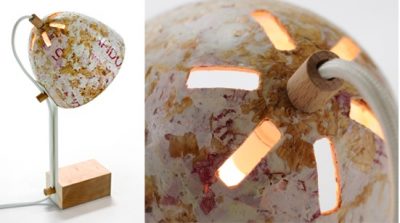 The plastic bag story isn’t over yet, but it’s definitely on the right track.
The plastic bag story isn’t over yet, but it’s definitely on the right track.
United Arab Emirates’ residents are awash with excitement over the Ministry of Environment and Water’s moves to ban conventional plastic bags by 2013. And so they should be. Plastic bags are the bane of natural existence. They leach toxic materials into our soil and water, they kill marine and terrestrial life, choke roughly half of the UAE’s camels, and won’t stop doing these things for centuries since they don’t biodegrade. But there is reason to cast a questioning eye on the alternatives.
AME recently reported that the Ministry of Environment and Water has stipulated that “biodegradable” plastic bags manufactured in the UAE have to be certified by the Emirates Authority for Standardization and Metrology (ESMA). Engineer Mohammad Saleh Badin, the authority’s Acting Director General, told the paper that all plastic bags must be biodegradeable by 2013.
What makes them biodegradable?
There are different kinds of biodegradable bags. Those that are made from natural materials, such as corn or animal byproducts, and are truly biodegradable. Then there are petroleum-based oxo-biodegradable plastics that incorporate special additives to speed up the degradation process.
The UAE has proposed to use the oxo-biodegradable variety as an alternative to the current 12 billion plastic bags used throughout the Emirates, 95% of which are manufactured in-country.
To date, three firms have been certified under the technical regulations issued by the UAE cabinet to produce these less environmentally harmful alternatives, including Wells Plastics Ltd, Symphony Environmental Ltd., and Bin Hilal Enterprises. All three firms will rely on additives to render their plastics biodegradable.
How does it work?
Metals salts are incorporated to catalyze a degradation which produces shorter chain molecules (these break down much more quickly than standard plastics). But this reaction only takes place in the presence of sunlight and oxygen. In other words, without oxygen, this process won’t happen.
If the new “biodegradable” plastic bags land up in the landfill with other solid waste, they won’t biodegrade since there will be insufficient oxygen. Also, these plastics will contain trace metals such as cobalt, iron, and manganese that can still leach into the environment.
Petroleum-based plastics will also continue to contribute to carbon emissions because the carbon trapped in them, unlike true biodegradable bags, can’t be sequestered.
Nor can they be recycled with normal plastic because they degrade in the presence of UV and heat. They also fail to meet the US ASTM D6400 standard for industrial scale composting.
There’s still time to act:
Since incorporating these new bags into the UAE is still in the planning phases, it is possible to simultaneously plan a proper post-disposal strategy to ensure that they are used in accordance with their design. If disposed where plenty of heat, moisture, and oxygen exists, the bags should degrade within 2-18 months. And if properly controlled, they need not leach trace metals into our waterways and soils.
More on Plastic Bags in the UAE:
Plastic Bags Choke Half of UAE Camels
It’s the Beginning of the End of Plastic Bags for the UAE
Syria Campaigns to Curb Syria’s Voracious Plastic Bag Appetite




Oxobiodegradable plastics CAN be recycled with normal plastic waste, as long as it is done before the onset of degradation. Apart from outerspace and/or buried deep in landfill where oxygen is absent (anaerobic condition), OBD plastics will not degrade but will NOT emit methane which is a much harmful gas than CO2, as compared to corn/starch or plant based products which will emit methane under anaerobic condition. ASTM 6400 is developed and meant for plant based/hydro products and it is not appropriate to use this standard to test for OBD. Think ASTM 6400 as a quality standard used to test the how redness (how red it is) of an APPLE. Can you use this standard on an ORANGE and say that ORANGE failed to meet this standard and therefore, failed the test because it is not red? OBD has their own set of test/standards. Refer to British Standards BSI-8472, which is truly meant for OBD plastics.
Project green home is the sustainable, eco-friendly radiant heating alternative to copper or PVC system. 100% polyethylene, biodegradable, affordable, and made in Vancouver, Canada
Hi Jane… I had these same thoughts and actually asked “The Green Sheikh” to look into it. I’m hoping that since there is time, the UAE authorities will develop an intelligent disposal method.
I was so pleased when I heard this scheme was going to happen but I do not understand the logic of making only half an effort to do it properly, if you are going to do it at all at least learn how to make little or no impact on the environment long term. Use fully organic biodegradeable bags as the current proposed effort is almost as bad as the plastic bags already in existance. We all know that without altering the waste disposable method, of normal landfill, this scheme is going to fail as all these bags will end up in a pile in landfill and won’t be able to breakdown….SO if this scheme is going to go ahead what is the new waste disposal proposal to go along with it as this is paramount to the success of the scheme???? Also, what about the metals that will leach out of these, this still doesn’t address the fact that iron, colbolt etc will be leaching into the already fragile eco-system.
Project GreenBag is the sustainable, eco-friendly alternative to plastic bags. 100% organic cotton, biodegradable, affordable, and made in San Francisco California.
http://www.ProjectGreenBag.com
http://www.facebook.com/ProjectGreenBag
http://twitter.com/projectgreenbag
Did they actually make the decision based on evidence of complete biodegradability to basic components such as carbon dioxide and water or the normal “extrapolated” data which is often shown as evidence
Oxo-biodegradable bags are more harmful than normal PE bags as they degrade into micro-plastic particles and are also non recyclable. The real solution is organic based compostable bags that contain no PE plastic and are 100% compostable and 100% biodegradable. Although these bags cannot be recycled with other PE bags they will decompose into organic waste not microscopic pollutants.